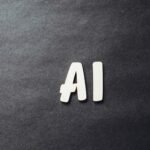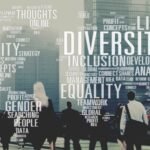The Role of Artificial Intelligence in Healthcare Diagnostics
Improved Image Analysis: AI algorithms can analyze medical images such as X-rays, MRIs, CT scans, and pathology slides with remarkable precision. AI-powered image analysis systems can identify abnormalities, lesions, and patterns that might be challenging for human observers to detect. This aids in early detection and improves diagnostic accuracy.
Early Disease Detection: AI algorithms can analyze vast amounts of patient data, including electronic health records (EHRs), medical images, genetic data, and lifestyle information, to identify patterns and risk factors associated with diseases. By detecting early warning signs, AI can assist in the timely diagnosis of conditions such as cancer, cardiovascular diseases, and neurological disorders. Diagnostic Support: AI-based diagnostic support systems provide healthcare professionals with valuable insights and recommendations.
These systems can compare patient symptoms and medical history with vast databases of medical knowledge and research. They can assist in differential diagnoses, suggesting potential conditions and treatment options based on similar cases and evidence-based guidelines. Personalized Medicine: AI enables the development of personalized treatment plans by considering individual patient characteristics, including genetic variations, lifestyle factors, and coexisting conditions.
By integrating patient data and scientific research, AI systems can provide tailored treatment recommendations, improving patient outcomes and reducing adverse events. Predictive Analytics: AI algorithms can analyze patient data to identify trends and patterns that may predict disease progression or potential complications.
This enables healthcare providers to intervene earlier, initiate preventive measures, and optimize treatment strategies, ultimately improving patient outcomes. Workflow Efficiency: AI streamlines and automates various diagnostic processes, reducing the burden on healthcare professionals. For example, AI-powered triage systems can prioritize patient cases, ensuring that urgent cases receive immediate attention. AI can also automate administrative tasks, such as data entry and documentation, allowing healthcare professionals to focus more on patient care.
Continuous Learning: AI systems have the capability to continuously learn and improve their diagnostic accuracy over time. Through machine learning, AI algorithms can analyze feedback and outcomes from previous diagnoses, enhancing their performance and adapting to new information and evolving medical knowledge. While AI holds tremendous promise in healthcare diagnostics, there are challenges to address, including data privacy, ethical considerations, and ensuring regulatory compliance.
Collaboration between AI developers, healthcare professionals, and regulatory bodies is essential to ensure responsible and safe integration of AI into healthcare diagnostics. With further advancements and validation, AI has the potential to transform diagnostics, enabling earlier detection, more accurate diagnoses, and improved patient care. Was this response better or worse? Better Worse Same


































